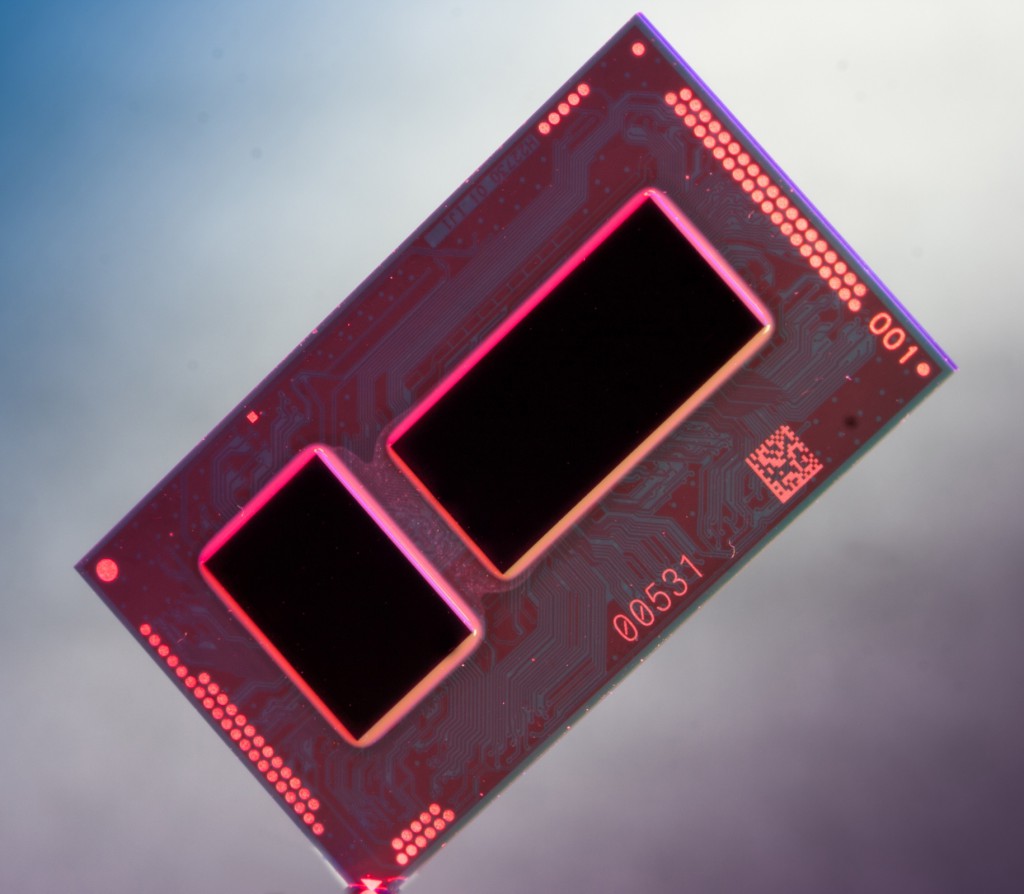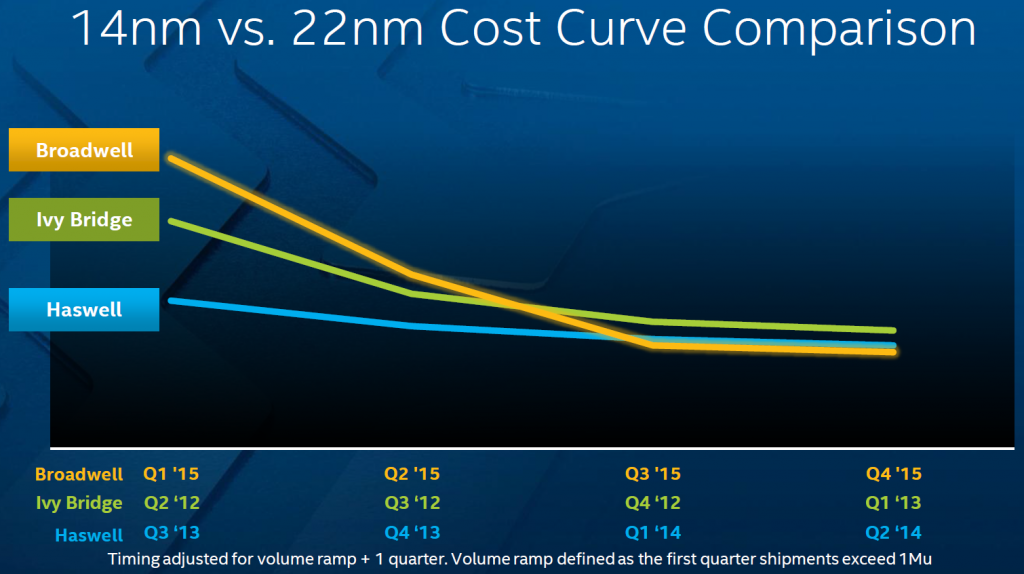UPDATE: Adding Intel's 14nm vs 22nm cost curve comparison as well as a comment regarding current “Broadwell” costs.
Intel Corp.’s 14nm manufacturing process was not a big success for the company because of initial yield issues. However, by now the majority of problems seem to be gone, at least, the world’s largest maker of microprocessors says so.
“The ramps of our Broadwell products are slightly ahead of our forecast,” said Brian Krzanich, chief executive officer of Intel, during the quarterly conference call with investors and financial analysts. “We are seeing a very nice migration of our product demand over to the 14nm. We are seeing some things like better yields, better utilization out of our 14nm [process technology] as it continues to get healthier.”
Because if abnormally high defect density, Intel had to delay mass production of its code-named “Broadwell” processors by almost a year. According to a slide that Intel share in late 2014, the cost of “Broadwell” processors in Q1 and Q2 2015 was expected to be higher than the current cost of “Ivy Bridge” and “Haswell” products (see graph below). Moreover, lower 14nm yields also mean that “Broadwell” chips cost Intel more than previous-generation CPUs early in their lifecycles.
Intel’s second-generation 14nm product – code-named “Skylake” – are due to released in the second half of 2015. In a bid to provide sufficient amount of “Broadwell” chips to partners and ensure high-volume launch of its “Skylake” central processing units, Intel plans to increase production of microprocessors using 14nm manufacturing technology in the coming months. The company will also decrease the amount of chips produced using 22nm fabrication process. Some of the 22nm production lines will be converted to 14nm tech.
Discuss on our Facebook page, HERE.
KitGuru Says: It is a little bit ironic that just when Intel has solved the majority of its 14nm problems, industry observers start to ask questions about 10nm manufacturing process, which is, according to some reports, expected to be delayed.
 KitGuru KitGuru.net – Tech News | Hardware News | Hardware Reviews | IOS | Mobile | Gaming | Graphics Cards
KitGuru KitGuru.net – Tech News | Hardware News | Hardware Reviews | IOS | Mobile | Gaming | Graphics Cards




